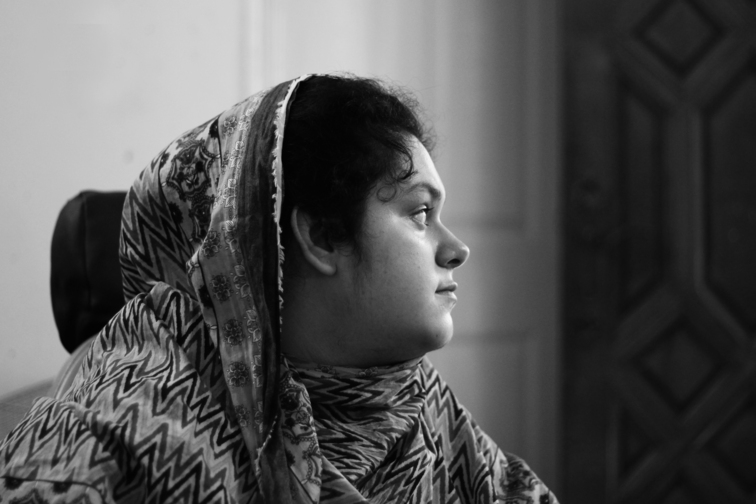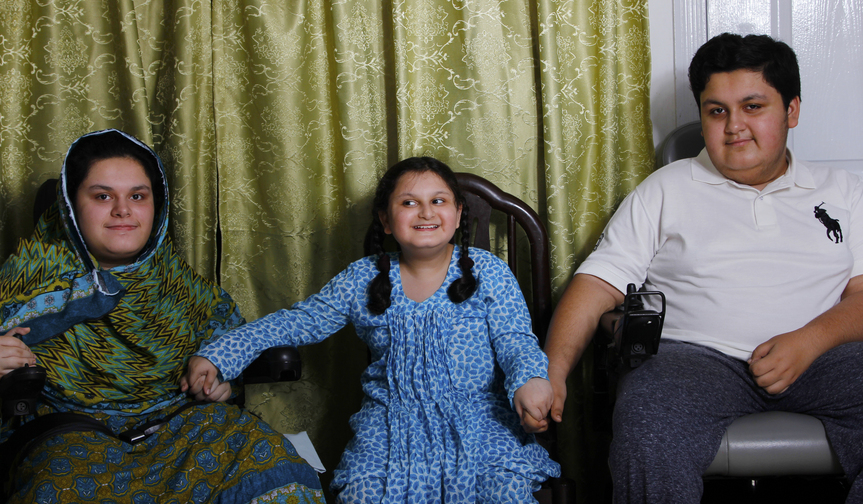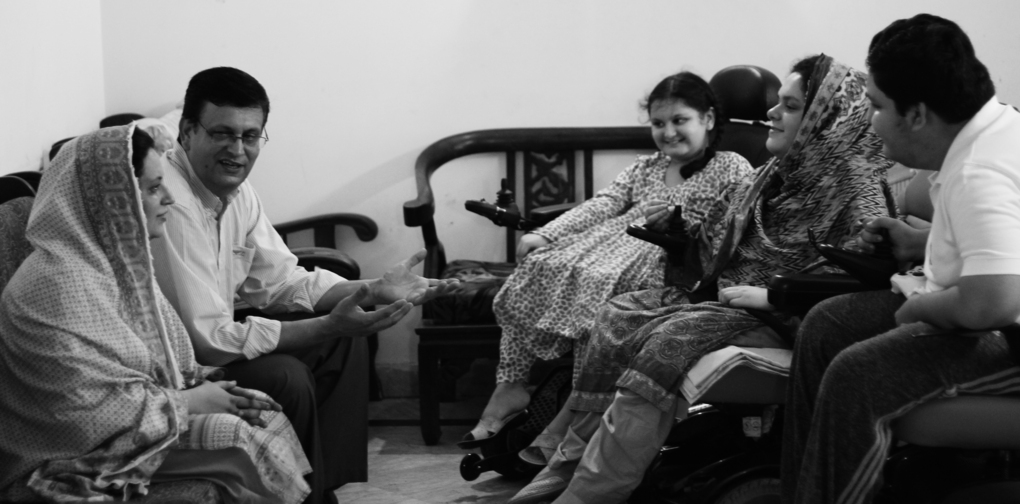 There are many nights when Saher Shahid, 42, of Lahore, Pakistan, quietly comes into the rooms of her three children—Nida, 16; Ahmed, 14; and Eman, 9—and looks at them in bewildered silence. No one can tell that a rare and genetic neuromuscular disorder is slowly wasting away her children’s bodies even as they sleep. Then Saher walks out and slowly collapses down on the floor against the door in grief.
There are many nights when Saher Shahid, 42, of Lahore, Pakistan, quietly comes into the rooms of her three children—Nida, 16; Ahmed, 14; and Eman, 9—and looks at them in bewildered silence. No one can tell that a rare and genetic neuromuscular disorder is slowly wasting away her children’s bodies even as they sleep. Then Saher walks out and slowly collapses down on the floor against the door in grief.
“How can something so perfect go so wrong?” Saher wonders. “My three beautiful children were once healthy and full of energy. And now I watch them suffer every day and there is nothing I can do to help them.”
A Great Beginning
Up until nine years ago, Saher and her husband Shahid seemed to have it all. They had a perfect family with two active and bright children, and had just welcomed their third child, unaware of the disease that was present in the DNA of each of their three children.
When Nida, then 7, suddenly developed high fever that would not subside, the Zubairs did not suspect anything out of the ordinary, even when it took five days of intravenous antibiotics in the hospital to bring down Nida’s fever. Back home, the parents noticed that the child seemed a bit unstable going up and down the stairs.
“We took Nida to see a doctor who ordered some tests and a few days later, our whole world came crashing down,” said a distraught Shahid.
Nida was diagnosed with a rare form of muscular dystrophy (MD) characterized by progressive weakness and wasting of muscles. At the age of 9, Nida was paralyzed from waist down and needed a wheelchair to get around.
By that time Ahmad had turned 7 and he started to experience similar symptoms—high fever followed by muscle weakness. Within days, doctors confirmed that he too had the same form of MD. The Zubairs were inconsolable. Their perfect world had suffered the worst imaginable blow.
“Without losing time, we decided to get our youngest daughter Eman tested,” said Shahid, “and the results confirmed what we already knew. All three of our children were carriers of MD.”
 Looking for Answers
Looking for Answers
The distraught father took to the web to find some answers. What he discovered shocked and saddened him. There was no known cure for MD. The life expectancy for many of the forms of MD depends on the degree to which the muscles, lungs, and heart are affected. Shahid found clinical studies and drugs that were in trial stages in the U.S. and U.K. but none that he could benefit from, considering his limited financial resources and reach.
Added Stress
An added stress to the Zubair family is the fact that Shahid—the only earning member of the family has been given a month’s notice to find a new job. He is a logistics manager at a local supply chain in Lahore. Even with a degree in MBA, Shahid has been unable to find a high-paying job that can support his family and their unique needs. The funds that are already limited are haunting the Zubairs as the dreaded end of job day approaches. The monthly cost to run the household and manage the children’s health expenses is $600. The health bills add up quickly as the children routinely suffer from respiratory, cardiac, stomach, and pulmonary issues.
“I knocked every door I could from higher up political leaders to specialists to philanthropic organizations,” said Shahid. “No one seems to want to help an individual and are only interested in helping other organizations or charities. My only hope is to have the children admitted to some clinical trial, research study, or gene therapy, specific to their condition in the U.S. or U.K. I can’t sit on the sidelines and watch my children suffer.”

The Daily Struggles
Today Eman is in wheelchair too, while Nida suffers from scoliosis of spine and needs corrective surgery. The family lacks the financial means to pay for the surgery, which can cost upward of $150,000. Nida is also unable to use her arms to eat or drink, while Ahmad’s spine is being compromised as each day passes.
In the midst of it all, you can still catch a glimpse of the children living their childhood—through their interests in internet surfing, playing computer games, reading, teasing each other, and joking around. The parents try to attend to both the children’s intellectual side during the week—a tutor comes a few days a week to teach academics.
“Our children lift our spirits and we cherish them,” said Saher. “Children are God’s gift and we will take care of ours until our dying days.”
The Zubair children depend on the parents for everything—from going to the bathroom to changing positions during day and night to prevent sores. In the morning, Shahid gets up early to attend to the children’s hygiene and sanitary issues and helps them on their wheelchairs before leaving for work.
“I often get calls at work from one or other of my children to come help them sit, stretch, or for other health reasons,” said Shahid. “It breaks my heart. As they grow older and heavier, it’s getting harder and harder for Saher to lift them and attend to their every need.”
Shahid understands that it is hard for others to imagine what his family goes through day to day. He feels reluctant to obligate family members by asking for caregiving respite. “People have their own problems to solve and houses to run,” he explains. “What I tell people is that if they want to experience what my children go through, just sit in a chair for a whole day with your hands tied to your back. That is what my children go through each day.”
Please consider donating to this amazing family by visiting www.miracleforthree.com.




